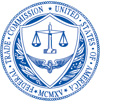Investment Risks
Promoters of alternative investment and money-making opportunities sometimes make their deals seem like a sure thing. The truth is that the higher the potential reward, the higher the risk. Don’t do business with someone who tries to convince you otherwise.
Dishonest promoters often are vague about the nature of the investment and focus instead on the money you'll make. To close the deal, they cite phony statistics, exaggerate the significance of a current event, claim they will guarantee the investment, or stress how unique their offer is. And they almost always try to rush you into a decision.
Investment decisions demand your time and careful consideration.
Before You Invest
Take your time.
Using sales scripts, scam artists may create the impression that only a few shares or partnership units are left in a "sure-fire" investment. They try to convince you that you’ll miss out on a big opportunity if you don’t send them thousands of dollars by overnight courier or money transfer. But if you do, you will lose your money. They insist on money transfers because it is nearly impossible to trace the money or get it back.
Do some research.
It’s best to get an independent appraisal of the specific asset, business, or investment you’re considering. An appraisal offered by the promoters could be fake. Talk to the previous owners of an asset or business for its history, but be aware that some dishonest promoters hire “shills” — people who lie about their success with an investment to convince you to buy it. Discuss all investment ideas or plans with an accountant, an attorney, or another advisor you know and trust.
Be skeptical.
Scam artists lie. Their success depends on having an airtight answer for everything.
Don’t let appearances fool you. For a few dollars, anyone can incorporate an entity. Scammers can produce slick promotional materials, or buy a toll-free number.
Sales representatives should tell you the risk of particular investments. Honest risk disclosures may say you could lose your whole investment. Be particularly suspicious of sales pitches that play down risk or portray written risk disclosures as routine formalities required by the government. Later, when you try to recover the money you lost, dishonest promoters could use those same risk disclosures against you.
Find out who you’re dealing with.
Can you find published information about the company in which you’re investing, or someone you trust who has heard of the company? Do an internet search with the name of the company and words like review, scam, or complaint. Look through several pages of search results.
It’s wise to check with law enforcement agencies in the community where the promoters are located, but keep in mind that it may be too soon for the company’s victims to realize they’ve been defrauded or to have filed complaints. Dishonest promoters often operate a particular scam for a short time and close down before they can be detected. Often, they reopen under another name, selling another investment scam. In addition, they may lie about their name or their business history, or even pay people to be "references."
Ask if the investment has a track record.
Scam artists often use news stories about the success of legitimate companies as bait by claiming that their "opportunity" is similar to that of a "hot" money-maker. Unfortunately, success stories of other companies in the field are irrelevant for your purposes. Get the track record of the company you’re considering investing in and the background of the people promoting it.
Get details.
Legitimate companies account for investors’ money at all times. Ask for written proof of how much of your money is going to the actual investment and how much is going to commissions, promoters’ profits, and marketing costs. If most of your money is slated to cover expenses and costs, much less will be available to earn a return.
Considering a securities investment? Visit investor.gov for tips, and check out any investment opportunity with your state securities agency.
Common Investment and Money-making Schemes
There are lots of different money-making schemes out there. If you’re considering an investment, it’s best to know the possible pitfalls. The FTC has more information about:
- Multilevel Marketing. Some multilevel marketing plans are pyramid schemes, which are illegal and risky. Learn how to tell the difference.
- Business Opportunities. Before you sign on the dotted line or send money to buy a business opportunity, find out about the Business Opportunity Rule and what it requires of sellers.
- Investment and Biz Opportunity Seminars. Promises of quick, easy money can be a powerful lure, but you may find that the products and information sold at these seminars are worthless.
- Internet Start-ups. Starting an internet business can sound like a dream, but bogus internet opportunity pitches are short on details and long on high-pressure tactics.
- Investing in Gold. Some gold promoters don't deliver what they promise, and may push people into an investment that isn't right for them.
- Collectible coins. Investing in collectible coins requires investigation. Learn about the coins, the graders, and the sellers.
- Investing in bullion. Dishonest bullion sellers sometimes make false claims about content, rarity, or value. If you want to invest in bullion or bullion coins, knowing what to ask first can make a big difference.
- Government Grant Scams. “Money for nothing” grant offers usually are scams.
- Invention Promotion Firms. Dishonest promoters make false and exaggerated claims about the market potential of an invention to sell expensive services.





